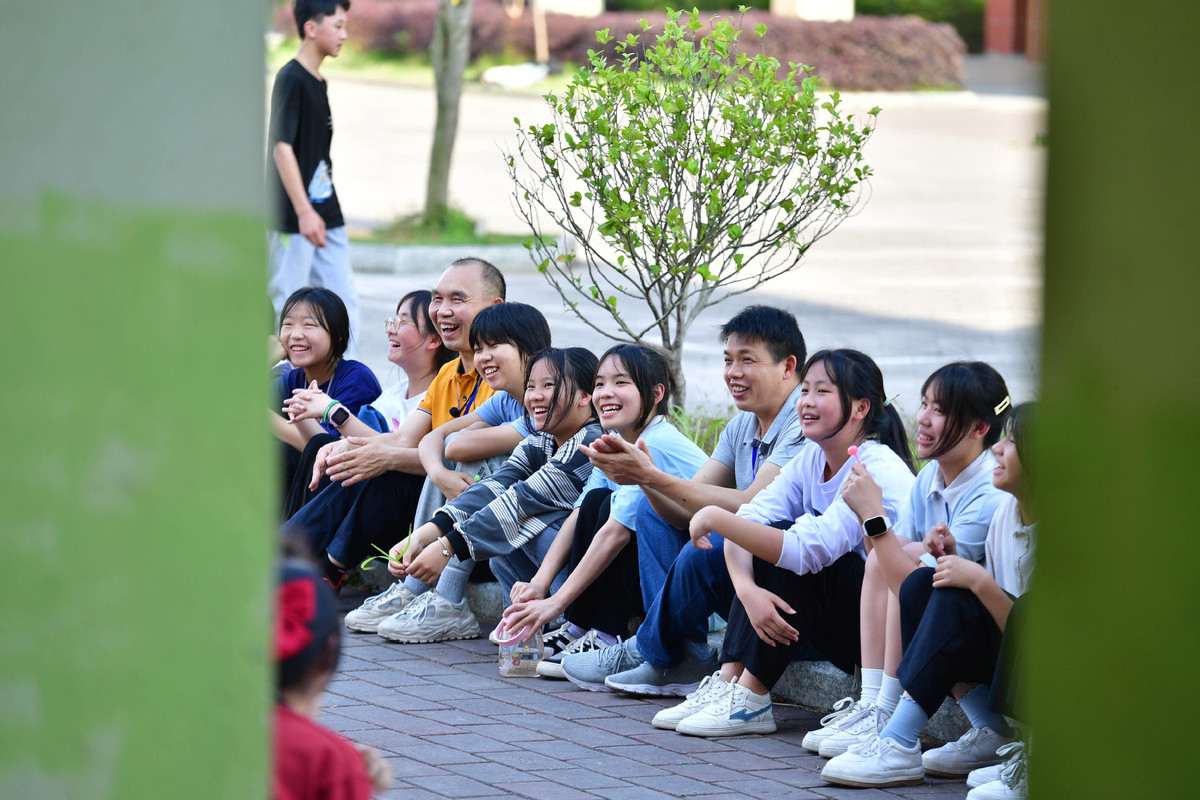United front work key to development of nation
By CAO DESHENG | China Daily | Updated: 2022-07-30 07:51

The "united front" work of the Communist Party of China might not be well understood by foreigners, but it has played a vital role in pooling as much strength as possible and building up the broadest consensus in China's revolution, construction, reform and opening-up over the past century.
Analysts said that in the new era, the united front, which is considered by the CPC as an important way of ensuring the success of the Party's work, will continue to contribute to national rejuvenation and promote harmony both at home and abroad.
In the course of its struggles over the past century, the Party has always placed the united front in a position of importance. Through united front work, it brings together all the forces that can be united and mobilizes all positive resources that can be mobilized to jointly work for the nation's strength and prosperity and the people's well-being.
Xi Jinping, general secretary of the CPC Central Committee, attaches great importance to the Party's united front work. He has said that the patriotic united front is an important means for the Party to unite all the sons and daughters of the Chinese nation, both at home and abroad, in support of the goal of national rejuvenation.
Speaking at the Central Conference on United Front Work in May 2015, Xi said that the nature of united front work calls for ensuring great unity and solidarity, and it means gathering people's support and strength, which are major strategic issues the Party should make every effort to address in its governance of the nation.
Starting in the 1920s, the Party's united front work pooled the war-torn country together by building good relations among various political parties prior to the founding of the People's Republic of China.
In the following decades, it endeavored to create unity and pool strengths, and actively promoted harmonious relations among political parties, ethnic groups, religions, and compatriots at home and abroad.
It has played a significant role in promoting the nation's system of multiparty cooperation and political consultation under the leadership of the CPC, and contributed to the unity of all Chinese people both at home and overseas in strengthening the cause of national reunification and the stability and prosperity of the Hong Kong and Macao special administrative regions, as well as stability in the Xinjiang Uygur autonomous region, the Tibet autonomous region and other areas inhabited by ethnic minority groups.
Zhou Shujie, a professor of politics at the Hunan Institute of Socialism in Changsha, Hunan province, said that the Party's united front has been consistently committed to the great unity of the Chinese nation, and has served as a mighty force in the nation's revolution, construction, reform and opening-up and modernization.
As the world experiences profound changes unseen in a century and risks and challenges are mounting for the nation's development, Zhou said that united front work is more important than ever before for the Party to bring together all Chinese people at home and abroad in order to prevail over risks and challenges on the way ahead.
The united front has also helped strengthen the bonds between the CPC and non-Party intellectuals, people engaged in the nonpublic economy and new social strata, including private entrepreneurs, technicians and managerial-level staff in private or foreign-funded companies, the self-employed, and employees in intermediate organizations.
Guo Hongxia, an associate professor at the Central Institute of Socialism in Beijing, said that the new social strata are an important force in promoting the construction of socialism with Chinese characteristics in the new era.
They work at the forefront of the nation's socioeconomic development, and constitute indispensable partners of the Party in exercising efficient governance and promoting the healthy development of the social and economic order, Guo said.
caodesheng@chinadaily.com.cn
























